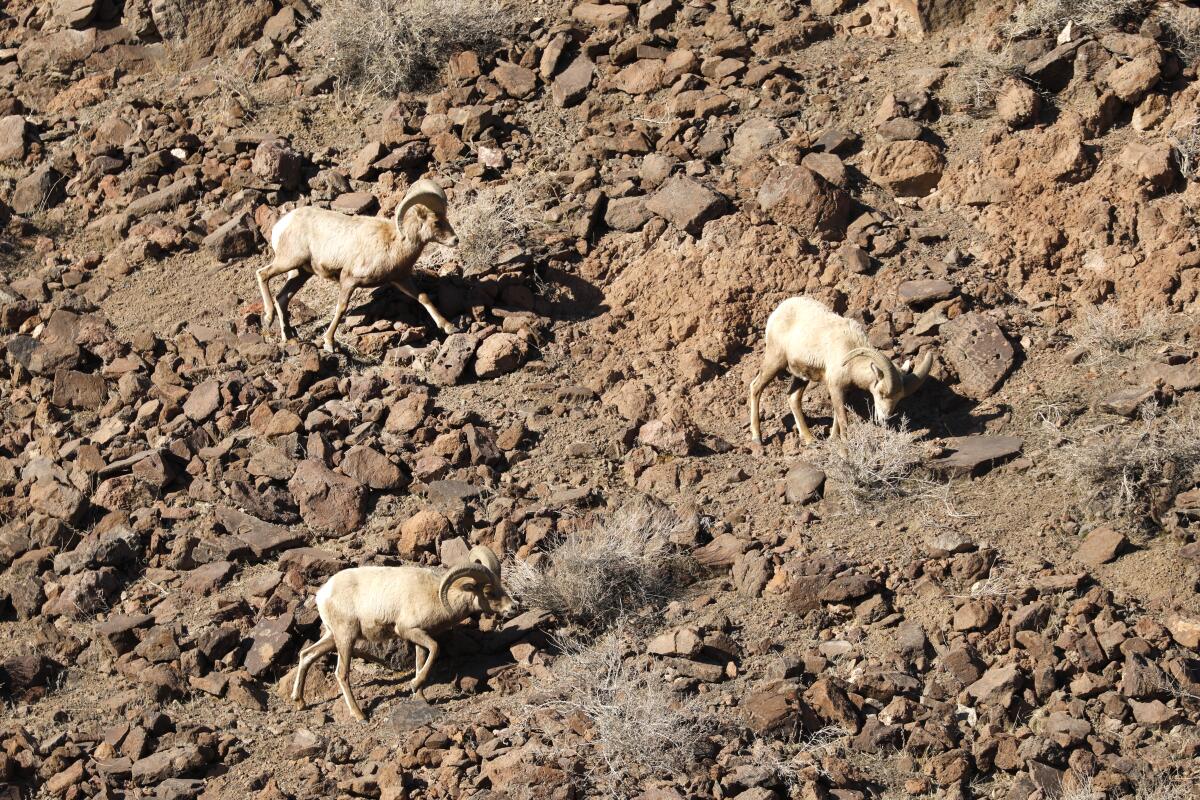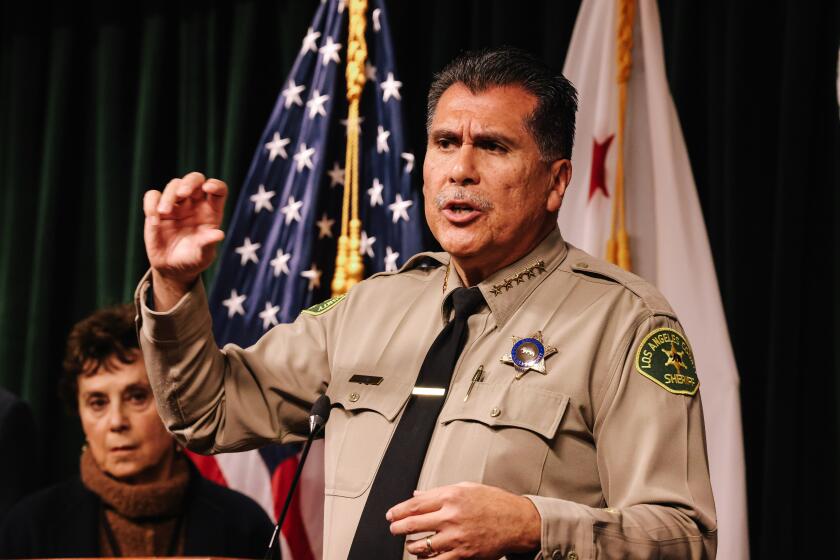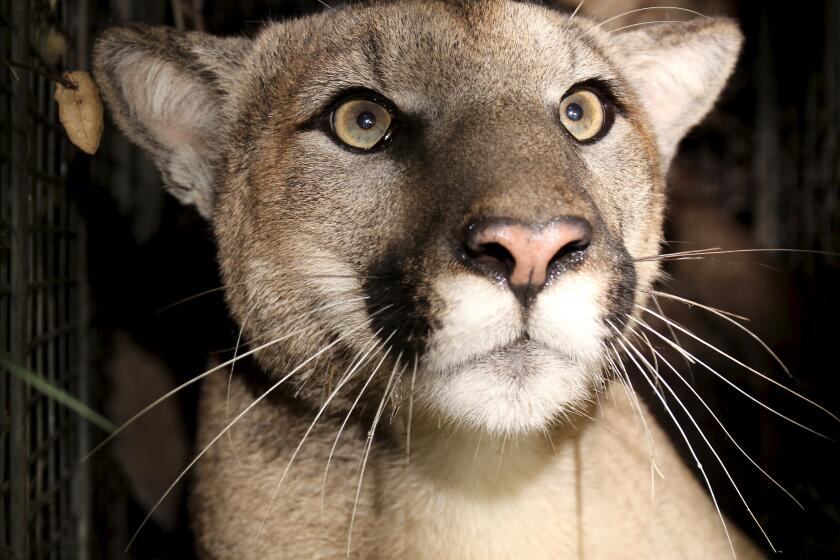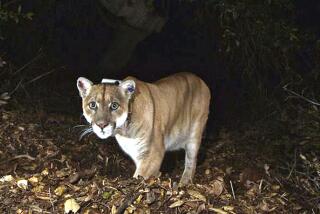As trains tear from L.A. to Vegas at 180 mph, bighorn sheep will have safe passage

A set of three wildlife crossings — meant to provide safe passage for bighorn sheep and other animals — has been added to the plans for a high-speed rail line project between Las Vegas and Southern California.
The California Department of Fish and Wildlife, the state Department of Transportation and rail builder Brightline West announced on Wednesday their agreement to design and build the crossings over the planned 218-mile rail line, slated to occupy the center divider of the heavily trafficked 15 Freeway.
Construction of the rail line is slated to begin in the second half of 2023 with completion expected in as many as four years, Brightline said.
“Roadways and rail lines must be designed to connect, not divide,” Gov. Gavin Newsom said in a news release. “This project will not only protect the precious wildlife and habitat of the Mojave Desert region but will also get people between Las Vegas and Southern California safely and efficiently — preserving one of the most popular corridors in our state.”
The crossings, notably, stand to benefit bighorn sheep.
Facing long-standing allegations of “appalling” conditions inside the county’s jails and violent deputy “gangs” operating on its streets, Sheriff Robert Luna announced a new office designed to combat those problems.
When the project was proposed, conservationists voiced concern that the sheep’s movements would be restricted just as drought and heat sent them searching farther afield for food and water.
Crossings were not part of the initial plans for the rail.
The project was touted as a win for zero-emission travel, with Brightline also claiming that travel time between destinations would be 2¼ hours as trains reached speeds of 180 miles per hour.
On its website, Brightline claimed the rail line would reduce the number of vehicles traveling between the two regions by 3 million per year, saving 400,000 tons of carbon dioxide.
Wildlife researchers noted in 2021 that three crossings in the Mojave Desert’s Soda, Cady and Clark mountains could help sustain the diversity in the desert.
Those are the areas that appear to be targeted with the crossings, which are planned for areas near Zzyzx and Rasor roads and the community of Mountain Pass.
The adult male mountain lion, which was not wearing a tracking collar, suffered fatal injuries in the crash, California wildlife officials said.
“Giving wildlife freedom to roam despite the growing infrastructure needed to support California’s robust human population is a top priority for CDFW,” the agencies said in a joint news release Wednesday.
In addition to the crossings, the project will incorporate plans to maintain or improve hundreds of preexisting culverts and crossings under Interstate 15. Desert tortoise fencing and wildlife exclusionary fencing also will be restored or installed.
The crossings are the latest wins for wildlife advocates who have been pushing for pathways for animals across the state.
Last spring, construction began on a long-hoped-for crossing over the treacherous 101 Freeway in Agoura Hills that would benefit mountain lions.
The $30-million Wallis Annenberg Wildlife Crossing is expected to be completed in 2025.
More to Read
Sign up for Essential California
The most important California stories and recommendations in your inbox every morning.
You may occasionally receive promotional content from the Los Angeles Times.













